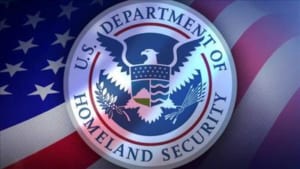The U.S. Citizenship and Immigration Services (“USCIS”) has issued new policy guidance in the USCIS Policy Manual to address the circumstances in which officers should issue Requests for Evidence (“RFEs”) and Notices of Intent to Deny (“NOIDs”).
In 2013, USCIS published guidance instructing officers to issue RFEs in cases involving insufficient evidence before denying such cases unless the officer determined that there was no possibility that the benefit requestor could overcome a finding of ineligibility by submitting additional evidence. In 2018, USCIS rescinded this “no possibility” policy and issued guidance stating that officers may deny benefit requests for lack of initial evidence without first sending an RFE or NOID.
The 2018 policy change resulted in USCIS denying certain benefit requestors an immigration benefits even though they would have demonstrated their eligibility if given a chance to provide additional evidence. These eligible benefit requestors had to have their cases reopened or file another benefit request to provide the additional evidence to establish their eligibility and ultimately obtain the immigration benefit. The denial of such cases, therefore, not only increased the burden on benefit requestors, but was also an inefficient use of USCIS resources. In such circumstances, the use of an RFE or NOID, rather than a denial, generally saves both benefit requestors and USCIS time and money.
In order to reduce barriers that may impede access to immigration benefits and ensure the agency is fairly and efficiently adjudicating immigration benefit requests, USCIS is returning to the principles of the 2013 policy by issuing RFEs and NOIDs when additional evidence could demonstrate eligibility for an immigration benefit. This policy will ensure that benefit requestors are given an opportunity to correct innocent mistakes and unintentional omissions and will help protect both benefit requestors and the agency from expending additional resources unnecessarily.
If you have questions about an RFE or a NOID, or other questions about U.S. immigration, , contact us at info@enterlinepartners.com and speak with a U.S. immigration attorney in Ho Chi Minh City, Manila and Taipei.
ENTERLINE & PARTNERS CONSULTING
Ho Chi Minh City, Vietnam Office
Suite 601, 6th Floor, Saigon Tower
29 Le Duan Street
Ben Nghe Ward, District 1
Ho Chi Minh City, Vietnam
Tel: +84 933 301 488
Email: info@enterlinepartners.com
Facebook: Enterline & Partners – Dịch vụ Thị thực và Định cư Hoa Kỳ
Website: http://enterlinepartners.com
Manila, Philippines Office
Tel: +632 5310 1491
Email: info@enterlinepartners.com
Facebook: Enterline and Partners Philippines
Website: https://enterlinepartners.com/language/en/welcome/
Copyright 2021. This article is for information purposes only and does not constitute legal advice. This article may be changed with or without notice. The opinions expressed in this article are those of Enterline and Partners only.








